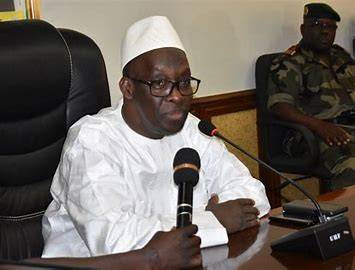Ex-defence minister of Guinea jailed for corruption.
A court in Guinea has sentenced Mohamed Diané, a former influential defense minister, to five years in prison on charges of corruption, illicit enrichment, embezzlement, and money laundering. Diané, who served as defense minister from 2015 to 2021 under President Alpha Condé, faced these charges following the army’s seizure of power in 2021.
In addition to the prison sentence, Diané was ordered to pay a $58.5 million (£46 million) fine. The court also ruled that his bank accounts and properties in the capital, Conakry, and the eastern city of Kankan be confiscated by the state. The judge stated that these assets were to be seized as their origins could not be justified.
Diané’s detention dates back to May 2022, when the military junta initiated a robust campaign against corruption in the country. Upon taking power, the junta identified combating corruption as one of its key priorities in the impoverished West African nation. To achieve this goal, they established a specialized anti-corruption court.
By the end of 2022, the military leaders had called for legal action against more than 180 individuals, including former ministers and officials accused of corruption. This sweeping campaign highlighted the junta’s commitment to addressing the systemic corruption that has plagued Guinea for years.
Diané’s case stands out as a high-profile example of the junta’s anti-corruption drive. His conviction underscores the regime’s determination to hold powerful figures accountable, marking a significant shift in the country’s approach to governance and the rule of law. The move has drawn attention both domestically and internationally, with observers noting its potential to reshape Guinea’s political and economic landscape.
While the junta’s anti-corruption efforts have been praised in some quarters, they have also raised concerns about fairness and due process. Critics argue that such campaigns can sometimes be used as tools to settle political scores or consolidate power, rather than genuinely address corruption. Nevertheless, the establishment of an anti-corruption court and the high-profile prosecutions suggest a serious attempt to tackle the issue.
Diané’s sentencing reflects the broader challenges facing Guinea as it seeks to recover from years of mismanagement and political instability. As the junta continues its efforts to root out corruption, the implications for governance, economic development, and public trust remain significant. For now, the sentencing of Mohamed Diané sends a clear message about the junta’s stance on accountability and its vision for a more transparent future in Guinea.



No comments yet
Be the first to share your thoughts!